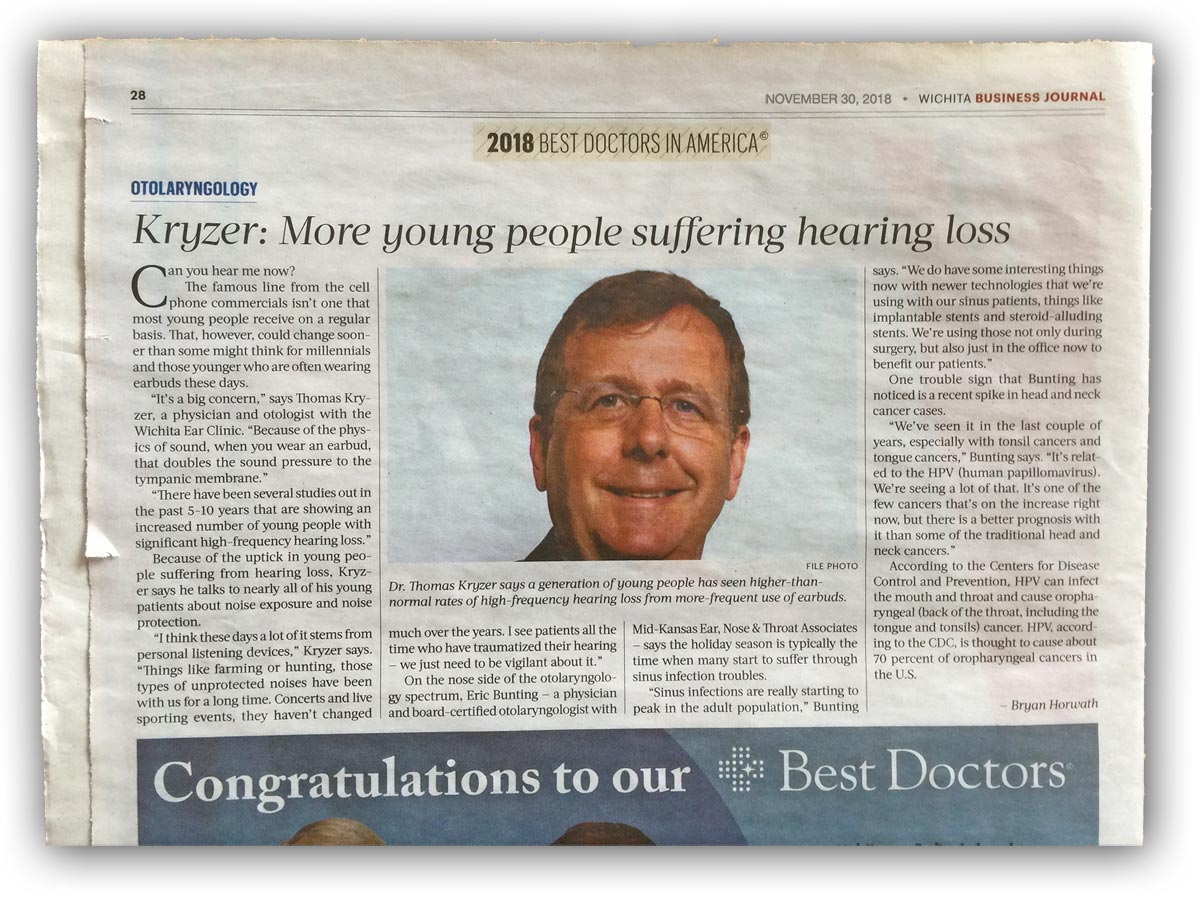Wichita Business Journal > November 30, 2018 > by Bryan Horwath
Dr. Thomas Kryzer 2018 Best Doctors

Kryzer: More young people suffering hearing loss
Can you hear me now?
The famous line from the cell phone commercials isn’t one that most young people receive on a regular basis. That, however, could change sooner than some might think for millennials and those younger who are often wearing earbuds these days.
“It’s a big concern,” says Thomas Kryzer, a physician and otologist with the Wichita Ear Clinic. “Because of the physics of sound, when you wear an earbud, that doubles the sound pressure to the tympanic membrane.”
“There have been several studies out in the past 5-10 years that are showing an increased number of young people with significant high-frequency hearing loss.”
Because of the uptick in young people suffering from hearing loss, Kryzer says he talks to nearly all of his young patients about noise exposure and noise protection.
“I think these days a lot of it stems from personal listening devices,” Kryzer says. “Things like farming or hunting, those types of unprotected noises have been with us for a long time. Concerts and live sporting events, they haven’t changed much over the years. I see patients all the time who have traumatized their hearing — we just need to be vigilant about it.”
On the nose side of the otolaryngology spectrum, Eric Bunting — a physician and board-certified otolaryngologist with Mid-Kansas Ear, Nose & Throat Associates — says the holiday season is typically the time when many start to suffer through sinus infection troubles.
“Sinus infections are really starting to peak in the adult population,” Bunting says. “We do have some interesting things now with newer technologies that we’re using with our sinus patients, things like implantable stents and steroid-alluding stents. We’re using those not only during surgery, but also just in the office now to benefit our patients.”
One trouble sign that Bunting has noticed is a recent spike in head and neck cancer cases.
“We’ve seen it in the last couple of years, especially with tonsil cancers and tongue cancers,” Bunting says. “It’s related to the HPV (human papillomavirus). We’re seeing a lot of that. It’s one of the few cancers that’s on the increase right now, but there is a better prognosis with it than some of the traditional head and neck cancers.”
According to the Centers for Disease Control and Prevention, HPV can infect the mouth and throat and cause oropharyngeal (back of the throat, including the tongue and tonsils) cancer. HPV, according to the CDC, is thought to cause about 70 percent of oropharyngeal cancers in the U.S.

